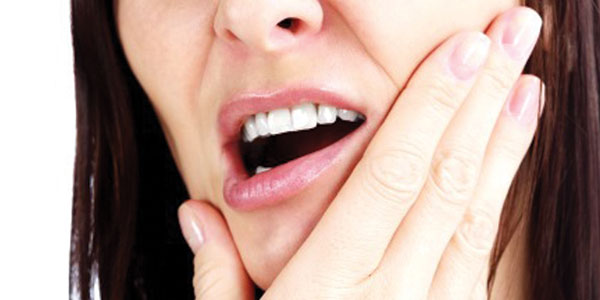
Many people think they should get their third molars – a.k.a., “wisdom teeth” – pulled.
Not necessarily.
If your wisdom teeth aren’t causing problems, you can leave them alone. However, if you have one that has come in through the gum only partially or is impacted because there isn’t space for it to erupt, then it’s important to get it extracted – especially if the tooth is impacted.
Impacted wisdom teeth may become twisted, displaced or tilted. They also might cause dental-related problems, such as swollen and bleeding gums, swelling around the jaw, bad breath, headaches, jaw aches, an unpleasant taste when eating, infection or gum disease, tooth decay, damage to a nearby tooth or surrounding bone and development of a cyst around the wisdom tooth.
To see if you qualify for a wisdom tooth extraction, visit your dentist and get an X-ray done. Sometimes, dentists will refer you to an oral surgeon, who’ll determine if you need to have a wisdom tooth or teeth removed.
Once your dentist or oral surgeon has determined you’re a good candidate, you’ll arrange an appointment to get your extraction done. The doctor who performs the extraction will give you the instructions to prepare for your extraction.
On the day of the extraction, a specialist will use anesthesia to numb the area. Many doctors use local anesthesia, but there are others that use general anesthesia or sedate you.
Once the area is numbed, the doctor will make an incision, divide the tooth into sections, remove the tooth, and clean and stitch the area. Once the procedure is completed, you’ll be moved to a recovery room, where you’ll receive post-care instructions. Post-care instructions usually include no vigorous rinsing of your mouth, not touching the wound area, taking any medications prescribed by the doctor and placing ice packs on the side of your face where the surgery was performed.
Generally, doctors don’t schedule follow-up appointments, unless a patient needs stitches removed or is experiencing pain, swelling, numbness or bleeding.
Remember, use good judgement when taking care of your teeth, particularly your wisdom teeth. That’s a smart decision that will help you for years to come.
Sé sabio cuando te saques tus muelas del juicio
Muchas personas piensan que deben quitarse sus terceros molares, a.k.a., «muelas del juicio».
No necesariamente.
Si sus muelas del juicio no están causando problemas, puede dejarlas en paz. Sin embargo, si tiene uno que ha entrado a través de la encía sólo parcialmente o se ve afectado porque no hay espacio para que salga, entonces es importante extraerlo, especialmente si el diente se ve afectado.
Las muelas del juicio impactadas pueden retorcerse, desplazarse o inclinarse. También pueden causar problemas dentales, como encías hinchadas y sangrantes, hinchazón alrededor de la mandíbula, mal aliento, dolores de cabeza, mandíbulas, un sabor desagradable al comer, infección o enfermedad de las encías, caries, daño a un diente cercano o alrededor del hueso y desarrollar un quiste alrededor de la muela del juicio.
Para ver si califica para la extracción de una muela del juicio, visite a su dentista y realice una radiografía. Algunas veces, los dentistas lo derivarán a un cirujano oral, quien determinará si necesita que le quiten una muela del juicio o los dientes.
Una vez que su dentista o cirujano oral haya determinado que usted es un buen candidato, coordinará una cita para realizar su extracción. El médico que realiza la extracción le dará las instrucciones para prepararse para su extracción.
El día de la extracción, un especialista utilizará anestesia para adormecer el área. Muchos médicos usan anestesia local, pero hay otros que usan anestesia general o sedantes.
Una vez que se adormece el área, el médico hará una incisión, dividirá el diente en secciones, extraerá el diente, y limpiará y coserá el área. Una vez que se complete el procedimiento, lo trasladarán a una sala de recuperación, donde recibirá instrucciones posteriores a la atención. Las instrucciones posteriores a la atención generalmente no incluyen un enjuague vigoroso de su boca, ni tocar el área de la herida, tomar medicamentos recetados por el médico y colocar bolsas de hielo en el costado de la cara donde se realizó la cirugía.
En general, los médicos no programan citas de seguimiento, a menos que un paciente necesite que se le quiten puntos o que experimente dolor, hinchazón, entumecimiento o sangrado.
Recuerde, use el buen juicio al cuidar sus dientes, particularmente sus muelas del juicio. Esa es una decisión inteligente que te ayudará en los años que están por venir.










